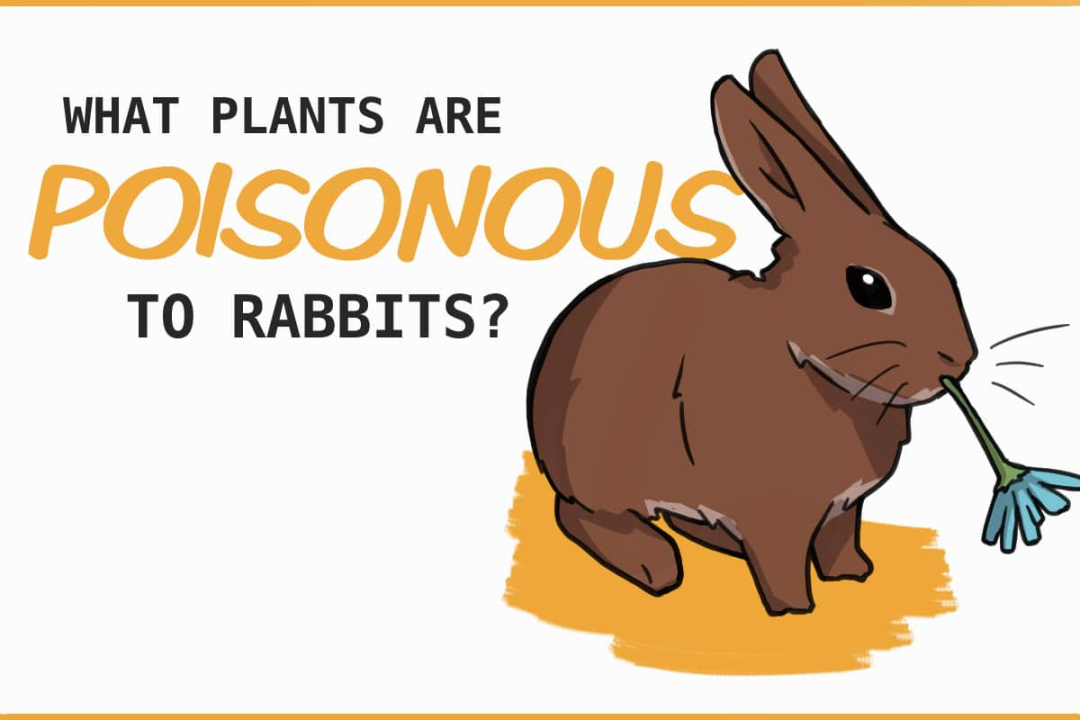What to Do If Rabbit Eats Poisonous Plant?
If you have a pet rabbit, it’s important to be aware of the potential dangers that certain plants can pose to their health. Rabbits are curious creatures and may inadvertently munch on a toxic plant if given the opportunity. In such cases, it’s crucial to act quickly and appropriately to ensure your rabbit’s well-being. Here are some steps you can take if your rabbit eats a poisonous plant:

1. Identify the Plant
The first step is to identify the plant your rabbit has ingested. This is crucial as different plants can have varying levels of toxicity, and knowing the specific plant can help with determining the appropriate course of action. If you are unsure of the plant’s identity, consider taking a sample or a clear photograph of it and consult with a veterinarian.
2. Contact a Veterinarian
Once you have identified the plant, contact a veterinarian immediately. Inform them about the situation and provide details about the plant consumed. Veterinarians have the necessary knowledge and expertise to guide you through the next steps and provide appropriate advice based on the specific plant and your rabbit’s condition.
3. Observe Your Rabbit
While waiting for veterinarian guidance, keep a close eye on your rabbit’s behavior. Look for any signs of distress or discomfort, such as loss of appetite, diarrhea, excessive drooling, difficulty breathing, or any other unusual symptoms. Noting these observations will help your veterinarian assess the severity of the situation and advise accordingly.
4. Do Not Induce Vomiting
Contrary to what you might think, you should not try to induce vomiting in your rabbit without professional guidance. In some cases, inducing vomiting can worsen the situation or lead to other complications. It’s essential to seek advice from a veterinarian before attempting any such measures.
5. Remove Access to the Plant
To prevent any further ingestion of the poisonous plant, remove any remaining parts of the plant from your rabbit’s environment. Ensure that your rabbit cannot access the area where the plant was present, and consider placing barriers or using baby gates to restrict their movement until the situation is resolved.
6. Follow Veterinarian’s Instructions
After consulting with a veterinarian, it is vital to follow their instructions carefully. They may ask you to bring your rabbit in for an examination or provide specific at-home care instructions. Always adhere to their advice to give your rabbit the best chance of recovery.
7. Provide Supportive Care
While waiting for veterinary assistance, there are a few supportive measures you can take to help your rabbit. Offer fresh water to keep them hydrated, but avoid force-feeding unless specifically advised by the veterinarian. Keep your rabbit in a calm and quiet environment, as stress can further impact their health.
8. Learn and Avoid
Once the situation is under control, take the opportunity to educate yourself about common poisonous plants and their potential danger to rabbits. This knowledge will help you prevent similar incidents in the future by being proactive in removing or restricting access to toxic plants in your rabbit’s environment.
FAQs
How do I know if a plant is toxic to my rabbit?
Identifying toxic plants can be challenging, but there are resources available online that provide comprehensive lists of plants toxic to rabbits. Additionally, consult with a veterinarian for guidance on specific plants you are unsure about.
Can I use home remedies to treat my rabbit if it eats a poisonous plant?
It’s strongly advised to seek professional veterinary assistance rather than relying on home remedies. Treating poisoning requires specific knowledge and expertise that veterinarians possess.
How long does it take for symptoms to appear after a rabbit ingests a toxic plant?
The onset of symptoms can vary depending on the plant and the amount ingested. Some symptoms may appear within a few hours, while others might take several days to manifest. It’s essential to monitor your rabbit closely for any signs of distress.
Can rabbits develop immunity to toxic plants over time?
While rabbits may develop a certain level of tolerance to certain plants over time, it is not advisable to rely on this. Toxic plants can still pose a significant risk to the health and well-being of your rabbit, so it’s crucial to prevent their access to such plants altogether.
Related Articles…
Copyright Notice:
Images displayed on this website are not our property, but are procured from the internet. If you hold copyrights to any image and wish for its removal, please get in touch with us.